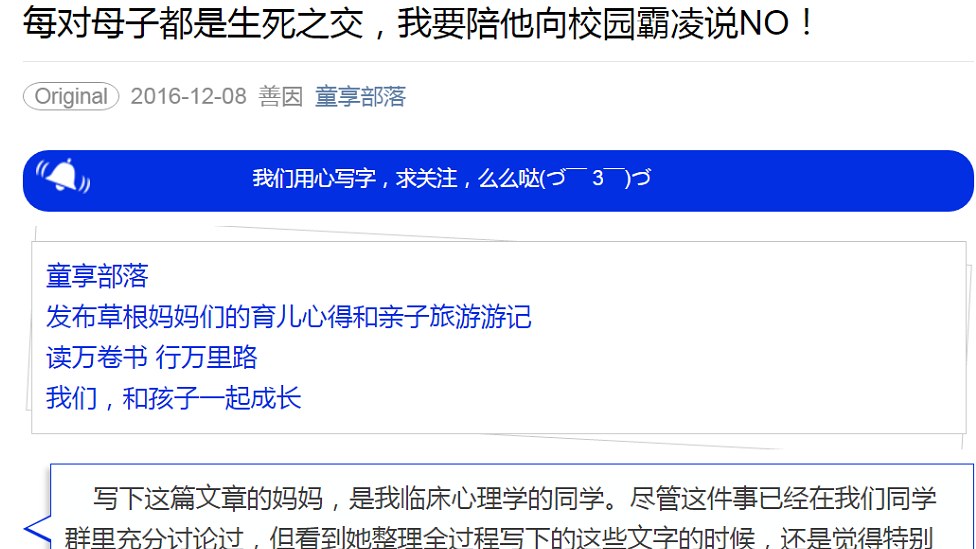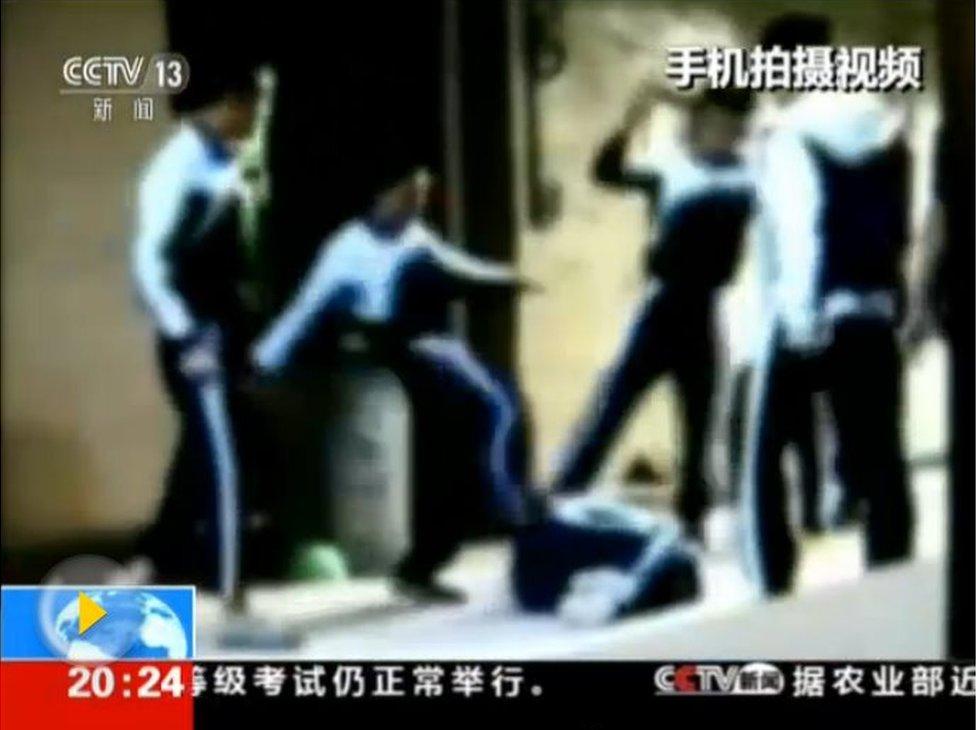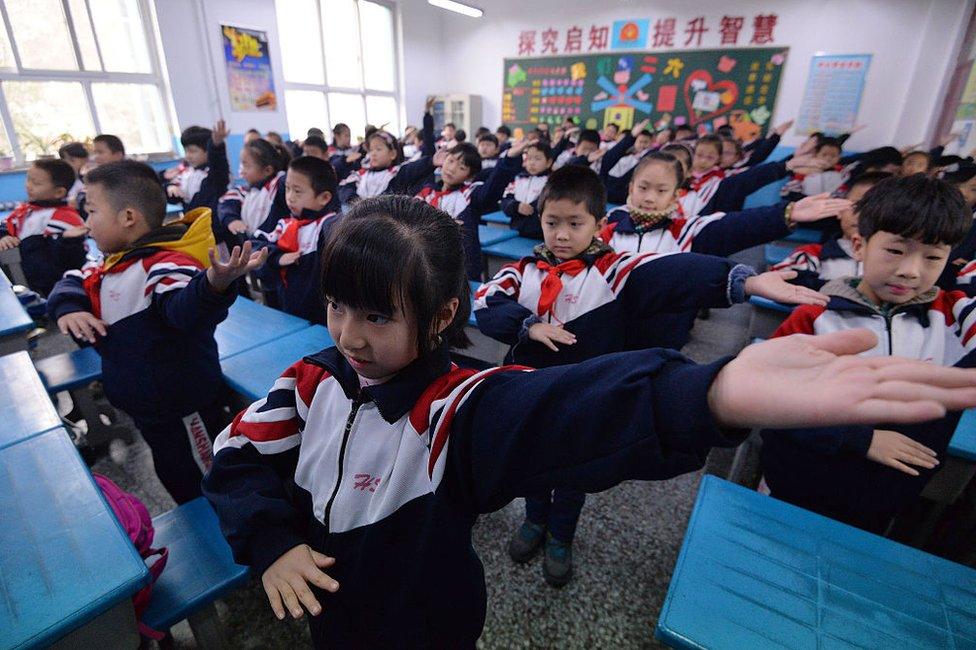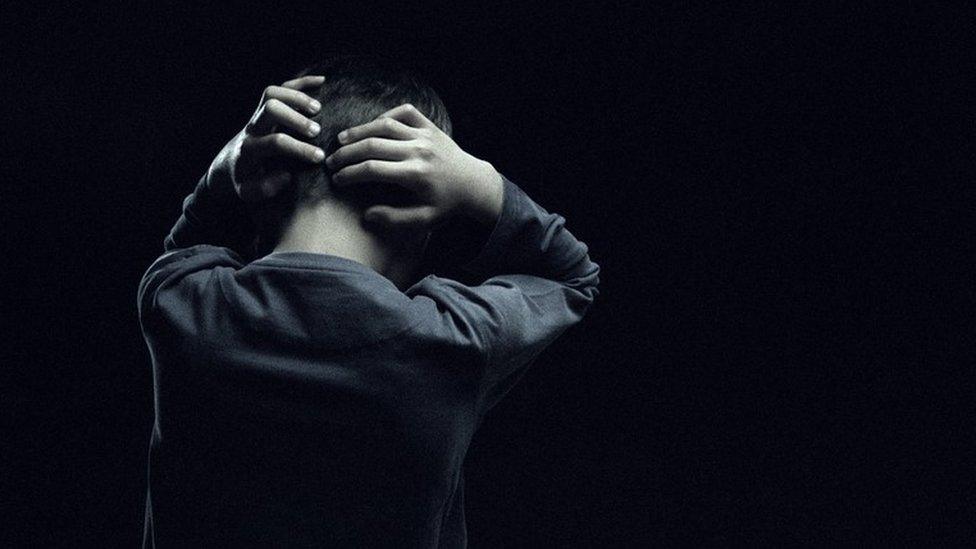Why China's parents tackle bullies on their own
- Published

The clip showing the 12-year-old victim (right) being kicked to the ground was shown by national broadcaster CCTV
A shocking video of a young boy being assaulted by his schoolmates is the latest in a slew of bullying incidents to spark outrage in China. While bullying is not unique to China, some parents feel the system leaves them with no choice but to take matters into their own hands.
The BBC looks at how and why they do this.
Parents shame bullies on social media
Taking to social media is seen as the default mode for ensuring justice by crowdsourcing internet outrage, so putting pressure on authorities to act.
This is exactly what one Beijing mother did last week when she took to messaging app WeChat with a powerful account about what happened to her 10-year-old son.
She said her son was bullied over the course of a year, culminating in an incident where classmates threw faeces and rubbish at him. Eventually he was taken out of school and diagnosed with acute stress disorder.
She added that the Zhongguancun Second Primary School, one of Beijing's best-known, had brushed her concerns off.
"We are clearly the victims here, we only ask that the school handles this and apologises, why have we been treated this way?" she wrote.

But when her emotive post triggered an outpouring of empathy and anger online, it also prompted the school to hastily issue a public statement.
It disputed her account, saying it did not believe the confrontation amounted to bullying.
By then the mother had already made her point and conjured up the sympathy of millions, even state media.
But it is also on social media that bullying becomes most visible. In 2015, China's internet watchdog banned websites from posting photos or video of bullying, but it is evidently still an issue.
In one clip filmed in Sichuan last year, a girl was seen being stripped naked and beaten by schoolmates, while others show children being slapped, kicked and even beaten with steel pipes., external
Parents negotiate personal compensation
The latest viral bullying video came from the southern city of Shenzhen in Guangdong province and was allegedly over a 12-year-old boy's refusal to pay "protection money" to a school gang.
In the clip, the boy is seen talking to a group of teenagers and is then sent sprawling to the ground when one kicks him. Curled up on the floor, he is then kicked repeatedly.
It drew universal condemnation and sent local officials scrambling to organise a mediation session.

The boy, seen here lying curled up on the ground, was beaten and kicked repeatedly
The attackers' families eventually agreed to apologise and pay compensation for the victim's medical fees "and other losses", city officials said on Monday.
Asking for money to resolve a bullying incident may be seen as unorthodox, but it is common and indeed encouraged in China, according to Beijing-based lawyer Zhang Yanfeng.
"It's seen as the best way for everyone, and the most harmonious. If it really can't be resolved, then the parents would be advised to seek legal recourse," he said.
So what are the obstacles they face?
One reason compensation and social media shaming are preferred is because they are quicker and more efficient than pursuing criminal charges.
Compensation, for instance, "takes just a few days compared to a few months or even years with the Chinese legal system", said Mr Zhang.

There is mounting concern about bullying in Chinese primary and junior high schools
But it is also hard for parents to seek legal redress in the most serious cases. Teenagers between 14 and 18 bear criminal responsibility only for the most serious of crimes, such as murder and rape.
The law on protecting minors advises schools to "carry out anti-bullying education" and "ensure the safety of victims", but activists say it is too vague and carries no penalties - reflecting a failure to take bullying seriously within Chinese society and schools.
The government has tried to grapple with the issue, including revising guidelines, but many parents and even state media are calling for tougher action.
Only this week the Global Times, external said current regulations were "toothless" - there is no official data or analysis of bullying in Chinese schools.
"There should be zero tolerance over school bullying of any kind, and the process... must start with children being given enough education from school authorities and parents, who shouldn't take bullying for granted just to save face," it said.
Analysts say that by treating bullying as a series of individual incidents to be settled and forgotten rather than a systemic issue to be tackled, parents end up resorting to unorthodox means to protect their children.
Reporting by the BBC's Tessa Wong
- Published31 August 2015
